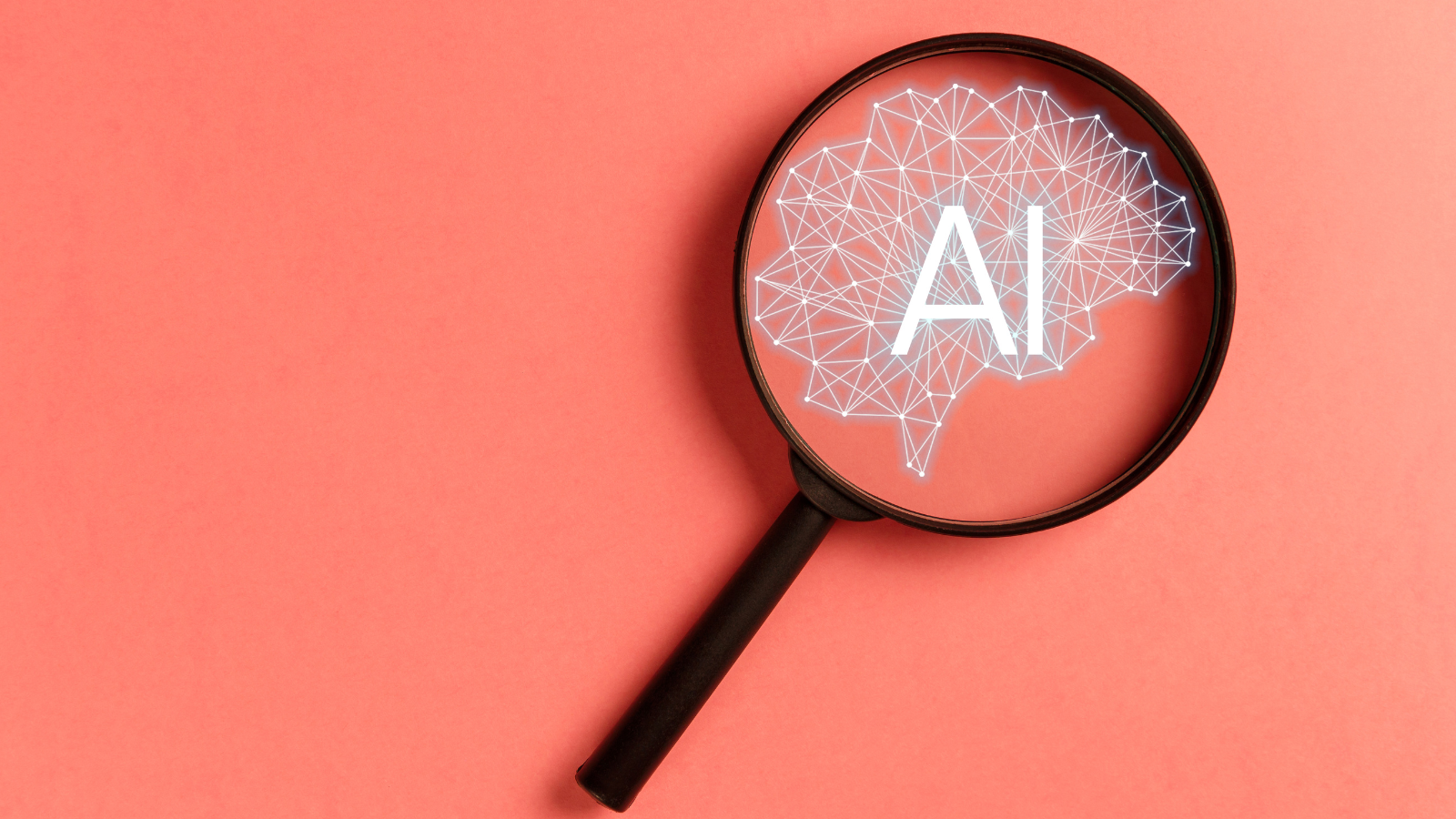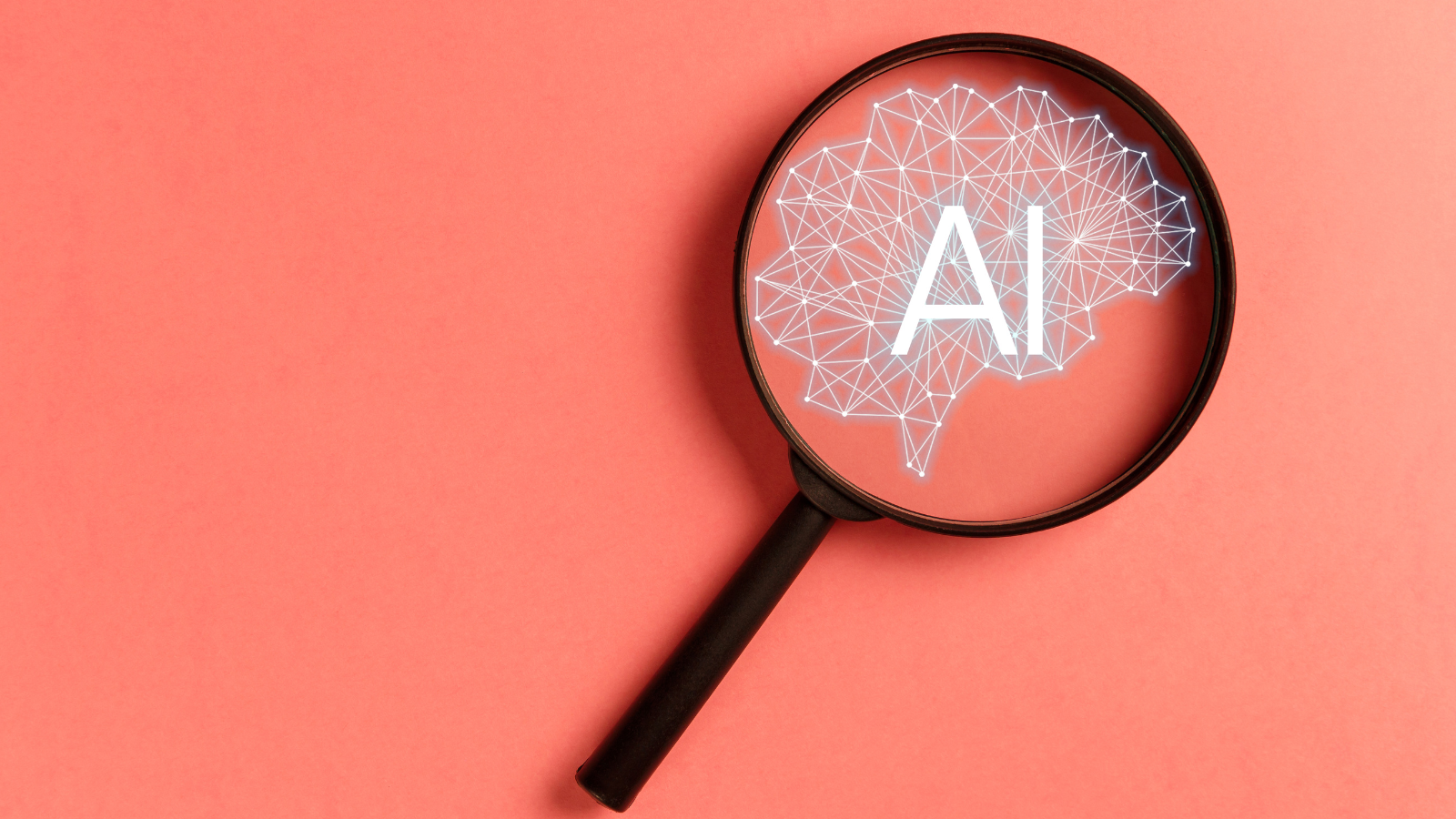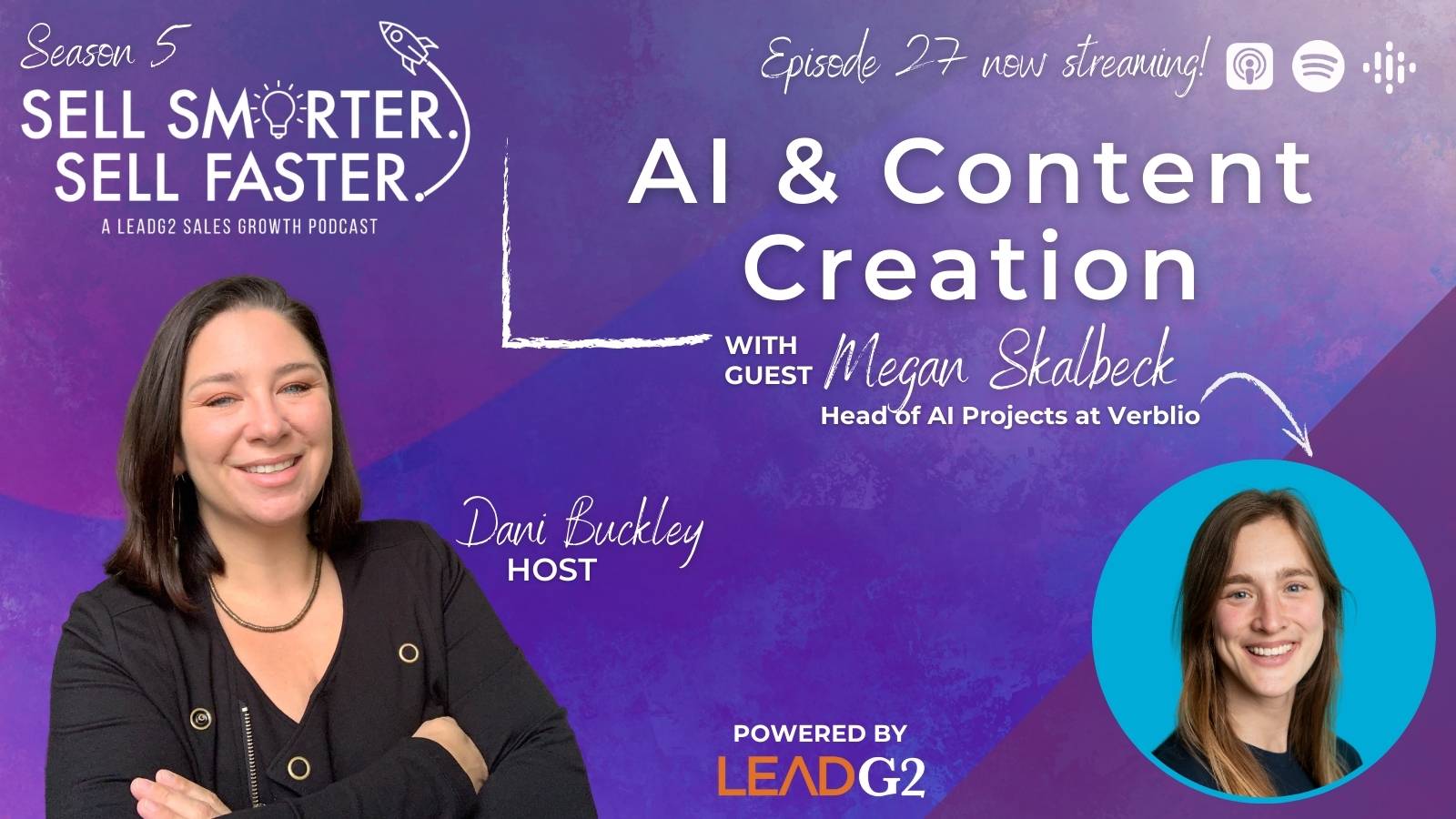Artificial Intelligence (AI) & Content Creation with Megan Skalbeck
In this episode of the Sell Smarter. Sell Faster. podcast, we’re exploring the ever-changing role of artificial intelligence (AI) in content...
2 min read
 Brent Tripp
:
September 11, 2023
Brent Tripp
:
September 11, 2023


The issue of AI is certainly what many would describe as a “hot button.” You don’t have to look far to find a firm opinion on the matter.
And sure, when thinking about AI’s future impacts, there are plenty of thorny issues to figure out, ranging from the practical to the existential. Look at Hollywood. As of this writing, the entertainment industry has been dealing with months-long strikes from both writers’ and actors’ unions due to, in large part, fears of how studios plan to use (or misuse) AI.
But just because AI is a lightning rod for controversy doesn’t mean we marketers shouldn’t make use of these tools where it makes sense.
After all, there’s no two ways about it. Once Pandora’s box has been opened, you might as well toss the lid over your shoulder.
And with how helpful many of these AI tools are, when used correctly, who would want to close that mythical box anyway?
Here are some examples of how AI boosts efficiency and productivity in marketing.
AI-powered tools can process vast amounts of data in real time, providing marketers with valuable insights into consumer behavior, preferences, and trends. This allows for data-driven decision-making and more effective campaign targeting.
AI algorithms analyze user data to offer personalized content recommendations. Whether it's suggesting products, articles, or videos, this enhances the user experience and increases engagement.
AI-driven email marketing platforms can segment audiences, personalize content, and optimize send times, leading to higher open and click-through rates. They can even predict the best content for individual subscribers.
AI tools can schedule posts, analyze performance metrics, and even generate social media content. They help maintain a consistent online presence and provide insights for fine-tuning strategies.
AI can assess lead quality by analyzing various factors, such as behavior, demographics, and engagement history. This helps sales teams prioritize leads and focus their efforts on the most promising prospects.
AI-generated content, from blog articles to product descriptions, can save significant time and effort. While it's not a replacement for human creativity, it can be a powerful tool for generating initial drafts or bulk content.
AI tools can analyze content and suggest improvements for better search engine rankings. They can identify keywords, provide content recommendations, and even track competitors.
So, in short, folding AI into your marketing strategy is not just about embracing cutting-edge technology; it's about streamlining operations, enhancing customer experiences, and achieving better results.
However, it's crucial to remember that AI is a tool that complements human expertise rather than replacing it. Marketers who leverage AI effectively will find themselves better equipped to navigate the ever-changing landscape of digital marketing while focusing on creativity and strategy—the heart and soul of marketing.
As AI continues to advance, the possibilities for automating marketing tasks will only grow. Embracing these technologies today can give your marketing efforts a competitive edge, ensuring that you stay at the forefront of the industry and deliver exceptional results to your clients and customers.

In this episode of the Sell Smarter. Sell Faster. podcast, we’re exploring the ever-changing role of artificial intelligence (AI) in content...
If your organic traffic has taken a hit lately, you’re not alone. Since Google rolled out its AI Overviews, some websites have seen traffic drop as...